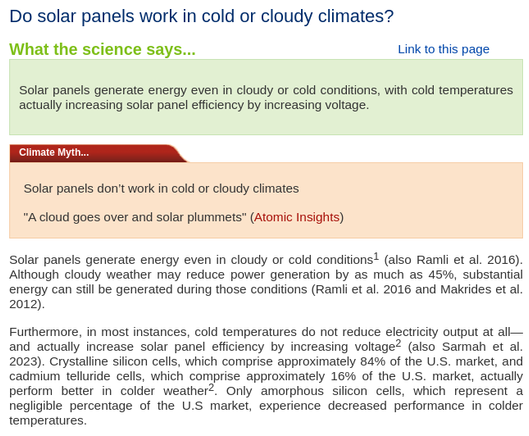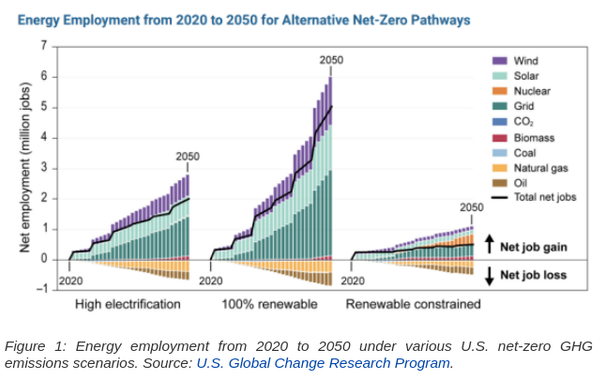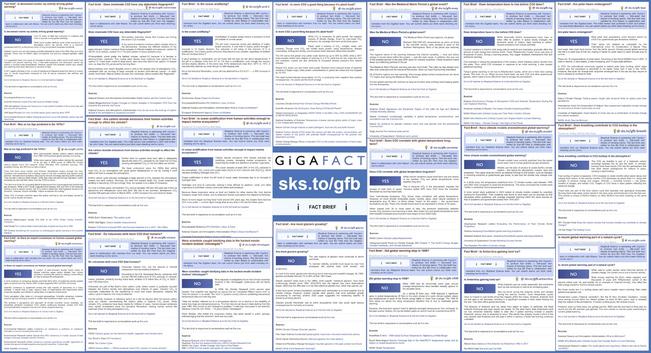Surprisingly positive findings:
"Solar panels generate energy even in cloudy or cold conditions (Ramli et al. 2016). Although cloudy weather may reduce power generation by as much as 45%, substantial energy can still be generated during those conditions (Ramli et al. 2016 and Makrides et al. 2012)."
From our collaboratively adapted collection of #ClimateSolutionsMyths #debunkings, authored at the #SabinCenterForClimateChangeLaw.
One of 33 helpful treatments.


